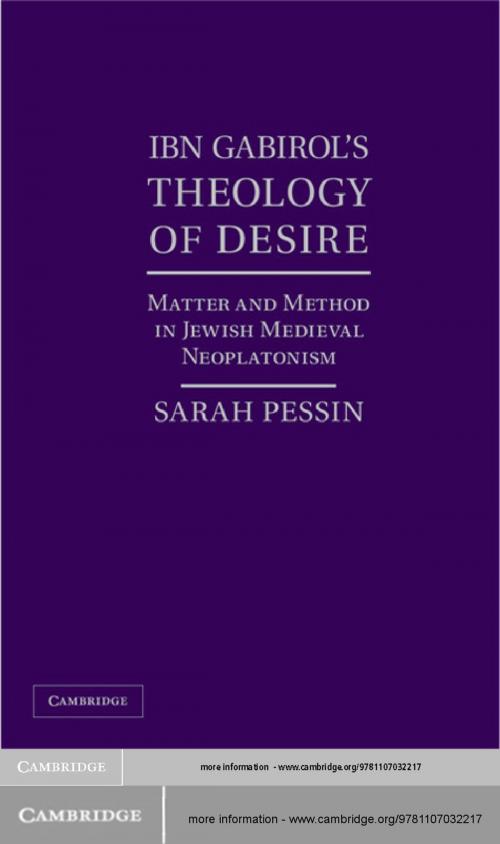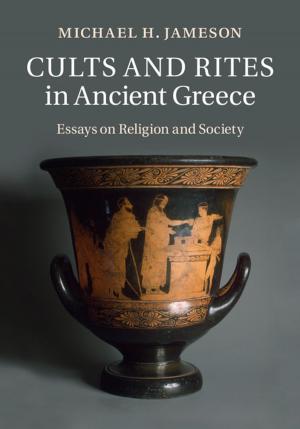Ibn Gabirol's Theology of Desire
Matter and Method in Jewish Medieval Neoplatonism
Nonfiction, Religion & Spirituality, Philosophy, Medieval, Social & Cultural Studies, Social Science| Author: | Sarah Pessin | ISBN: | 9781107241671 |
| Publisher: | Cambridge University Press | Publication: | July 8, 2013 |
| Imprint: | Cambridge University Press | Language: | English |
| Author: | Sarah Pessin |
| ISBN: | 9781107241671 |
| Publisher: | Cambridge University Press |
| Publication: | July 8, 2013 |
| Imprint: | Cambridge University Press |
| Language: | English |
Drawing on Arabic passages from Ibn Gabirol's original Fons Vitae text, and highlighting philosophical insights from his Hebrew poetry, Sarah Pessin develops a 'theology of desire' at the heart of Ibn Gabirol's eleventh-century cosmo-ontology. She challenges centuries of received scholarship on his work, including his so-called Doctrine of Divine Will. Pessin rejects voluntarist readings of the Fons Vitae as opposing divine emanation. She also emphasizes pseudo-Empedoclean notions of 'divine desire' and 'grounding element' alongside Ibn Gabirol's use of a particularly Neoplatonic method with apophatic (and what she terms 'doubly apophatic') implications. In this way, Pessin reads claims about matter and God as insights about love, desire, and the receptive, dependent and fragile nature of human beings. Pessin reenvisions the entire spirit of Ibn Gabirol's philosophy, moving us from a set of doctrines to a fluid inquiry into the nature of God and human being – and the bond between God and human being in desire.
Drawing on Arabic passages from Ibn Gabirol's original Fons Vitae text, and highlighting philosophical insights from his Hebrew poetry, Sarah Pessin develops a 'theology of desire' at the heart of Ibn Gabirol's eleventh-century cosmo-ontology. She challenges centuries of received scholarship on his work, including his so-called Doctrine of Divine Will. Pessin rejects voluntarist readings of the Fons Vitae as opposing divine emanation. She also emphasizes pseudo-Empedoclean notions of 'divine desire' and 'grounding element' alongside Ibn Gabirol's use of a particularly Neoplatonic method with apophatic (and what she terms 'doubly apophatic') implications. In this way, Pessin reads claims about matter and God as insights about love, desire, and the receptive, dependent and fragile nature of human beings. Pessin reenvisions the entire spirit of Ibn Gabirol's philosophy, moving us from a set of doctrines to a fluid inquiry into the nature of God and human being – and the bond between God and human being in desire.















